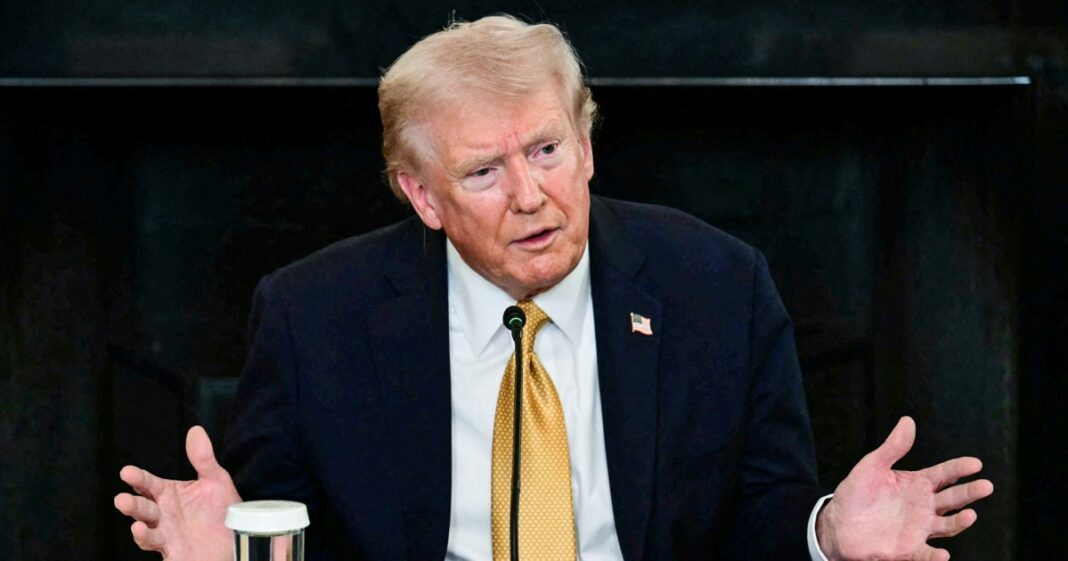The Controversial Ad: Ronald Reagan and Tariffs
Introduction
The political landscape surrounding trade tariffs has recently stirred intense reactions, especially with a controversial advertisement released in Canada. Tapping into the legacy of former President Ronald Reagan, the ad utilizes excerpts from his speeches to critique current trade policies. This article explores the implications of this advertisement, the reactions it has garnered, and its larger significance in today’s trade discourse.
The Advertisement: An Overview
Recently, the province of Ontario launched an advertisement that features an edited version of a speech by Ronald Reagan from 1987. The ad specifically addresses the complications associated with trade tariffs, effectively implying that Reagan would have opposed current tariff strategies. This advertisement has not only made waves in Canada but has also drawn significant attention south of the border.
The Statement from the Ronald Reagan Foundation
In a public statement, the Ronald Reagan Foundation expressed outrage over the advertisement, labeling it as fraudulent. They assert that the ad misrepresents Reagan’s actual speeches, particularly regarding his views on tariffs. Specific excerpts from Reagan’s speeches emphasize his concerns on protectionism, arguing that “high tariffs inevitably lead to retaliation by foreign countries.” This strong stance underscores the foundation’s belief that the context and intent of Reagan’s messages have been distorted.
The Response from Donald Trump
In light of the advertisement, former President Donald Trump reacted sharply, declaring that he would be canceling trade negotiations with Canada. Trump, known for his staunch pro-tariff position, criticized the ad as misleading and “fake.” He asserted on social media that Reagan actually supported tariffs for the sake of national security, directly countering the sentiment conveyed in the Ontario ad.
Dissecting the Ad’s Content
Critics have pointed out that while the advertisement does condense Reagan’s words, it retains a core sentiment against protectionism. Indeed, Reagan himself had occasionally imposed tariffs despite his general skepticism about their efficacy. The nuanced relationship between his policies and his rhetoric creates a complex backdrop for evaluating the ad’s claims.
The advertisement’s editing is notable—Reagan’s remarks are rearranged, and some segments are selectively quoted, which critics argue alters their original meaning. This has raised questions about the ethical boundaries of using historical figures in contemporary political discourse.
The Impact of the Ad
The Ontario advertisement has sparked broader discussions regarding the use of historical figures in political narratives. As societies grapple with modern issues of trade and economics, invoking leaders like Reagan provides a convenient touchstone for debates on policy direction. However, this also opens the door for manipulation of context, as seen in the current situation.
Legal Considerations and Future Ramifications
The Ronald Reagan Foundation has indicated that it is considering legal action against those responsible for the ad. While the legality of using Reagan’s speeches in a commercial context is at the forefront, the larger discourse surrounding the ad raises ethical questions about accuracy in political advertising and the potential consequences of misleading representations.
Concluding Thoughts
The ad’s duality—decrying tariffs while using a president who famously enacted them—critically illustrates the complexity of retelling historical narratives in modern political contexts. This controversy not only highlights the ongoing debate about tariffs but also speaks to the broader implications of how history is invoked in current politics. As this dialogue continues, the intersection of trade policies and historical legacies remains a fertile ground for discussion, sparking reactions from politicians, historians, and the public alike.



